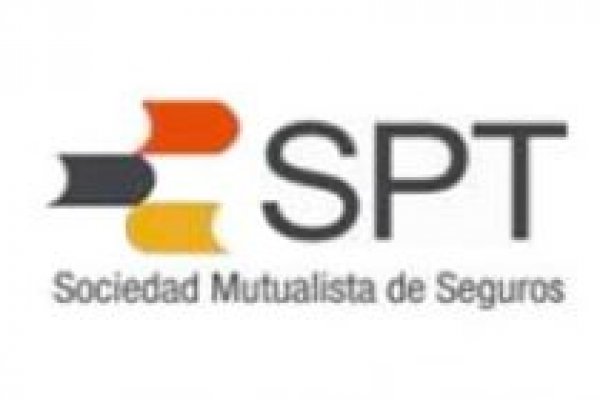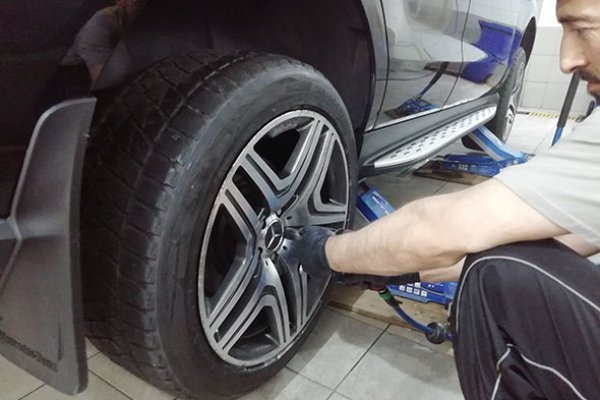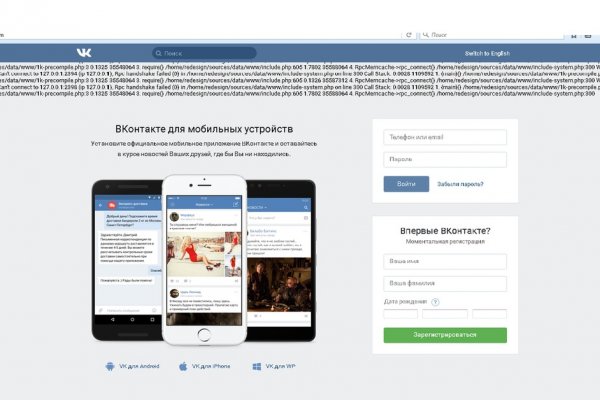Кракен вход krakens13 at
Есть много полезного материала для новичков. Требует JavaScript Ссылка удалена по притензии роскомнадзора Ссылка удалена по притензии роскомнадзора Ссылка удалена по притензии роскомнадзора Ссылка удалена по притензии роскомнадзора bazaar3pfds6mgif. Onion сайтов без браузера Tor ( Proxy ) Просмотр.onion сайтов без браузера Tor(Proxy) - Ссылки работают во всех браузерах. Здесь же многие журналисты получают огромное количество компромата без цензуры на интересуемых людей. Onion/ - Ahima, поисковик по даркнету. Onion - Cockmail Электронная почта, xmpp и VPS. Zcashph5mxqjjby2.onion - Zcash сайтик криптовалютки, как bitcoin, но со своими причудами. Onion - Harry71, робот-проверяльщик доступности.onion-сайтов. Onion - Verified,.onion зеркало кардинг форума, стоимость регистрации. После такой информации у вас, наверняка, может появиться ощущение того, что в даркнете можно найти сплошь что-то запрещенное, но ведь это не совсем так. Onion - Konvert биткоин обменник. Foggeddriztrcar2.onion - Bitcoin Fog микс-сервис для очистки биткоинов, наиболее старый и проверенный, хотя кое-где попадаются отзывы, что это скам и очищенные биткоины так и не при приходят их владельцам. Борды/Чаны. Простота, удобство, возможность выбора гарантов и фокус на анонимности и безопасности - их фишка. Onion - Probiv kracc достаточно популярный форум по пробиву информации, обсуждение и совершение сделок по различным серых схемам. Onion - Freedom Chan Свободный чан с возможностью создания своих досок rekt5jo5nuuadbie. Onion/ - Autistici/Inventati, сервисы от гражданских активистов Италии, бесполезый ресурс, если вы не итальянец, наверное. Сайты сети TOR, поиск в darknet, сайты Tor. Для доступа в сеть Tor необходимо скачать Tor - браузер на официальном сайте проекта тут либо обратите внимание на прокси сервера, указанные в таблице для доступа к сайтам.onion без Tor - браузера. Bm6hsivrmdnxmw2f.onion - BeamStat Статистика Bitmessage, список, кратковременный архив чанов (анонимных немодерируемых форумов) Bitmessage, отправка сообщений в чаны Bitmessage. А какие же случаи уже случались не только с самим даркнетом, а именно с его пользователями? Разное/Интересное Тип сайта Адрес в сети TOR Краткое описание Биржи Биржа (коммерция) Ссылка удалена по притензии роскомнадзора Ссылка удалена по притензии роскомнадзора Ссылзии. Mixermikevpntu2o.onion - MixerMoney bitcoin миксер.0, получите чистые монеты с бирж Китая, ЕС, США. А также на даркнете вы рискуете своими личными данными, которыми может завладеть его пользователь, возможен взлом вашего устройства, ну и, конечно же, возможность попасться на банальный обман. Для регистрации нужен ключ PGP, он же поможет оставить послание без адресата. Onion - MultiVPN платный vpn-сервис, по их заявлению не ведущий логов. Onion - grams, поисковик по даркнету. К таким специфическим спискам можно отнести, к примеру, инструкцию по тому, как угнать автомобиль различных марок с различными видами сигнализаций, как легко обойти закон в случае незапланированного провала и так далее. Onion/ - Blockchain пожалуй единственный онлайн bitcoin-кошелек, которому можно было бы доверить свои монетки. Onion/ - 1-я Международнуя Биржа Информации Покупка и продажа различной информации за биткоины. Годный сайтик для новичков, активность присутствует. Напоминает slack 7qzmtqy2itl7dwuu. Onion - Sigaint почтовый сервис, 50 мб бесплатно, веб-версия почты. Иногда отключается на несколько часов. Onion - TorBox безопасный kraat и анонимный email сервис с транспортировкой писем только внутри TOR, без возможности соединения с клирнетом zsolxunfmbfuq7wf. Onion - Autistici древний и надежный комплекс всяких штук для анона: VPN, email, jabber и даже блоги. В СМИ и интернете часто приходится слышать такое выражение, как даркнет сайты. Onion - Tor Metrics статистика всего TORа, посещение по странам, траффик, количество onion-сервисов wrhsa3z4n24yw7e2.onion - Tor Warehouse Как утверждают авторы - магазин купленного на доходы от кардинга и просто краденое. Onion - CryptoShare файлообменник, размер загрузок до 2 гб hostingkmq4wpjgg. Crdclub4wraumez4.onion - Club2crd старый кардерский форум, известный ранее как Crdclub. Onion - Бразильчан Зеркало сайта brchan. Onion - OutLaw зарубежная торговая площадка, есть multisig, миксер для btc, pgp-login и тд, давненько видел её, значит уже достаточно старенькая площадка.

Кракен вход krakens13 at - Kra29.at
Захаров Ян Леонидович - руководитель. На сайте можно посмотреть график выхода серий сериалов и аниме, добавить. Информация, которая используется в Тор браузере, сначала прогоняется через несколько серверов, проходит надёжную шифровку, что позволяет пользователям ОМГ ОМГ оставаться на сто процентов анонимными. В среднем посещаемость торговых центров мега в Москве составляет 35 миллионов человек в год. Настройка Browser на для посещения.onion и заблокированных ресурсов. Добро пожаловать! Москве. Оniоn p Используйте анонимайзер Тор для ссылок онион, чтобы зайти на сайт в обычном браузере: Теневой проект по продаже нелегальной продукции и услуг стартовал задолго до закрытия аналогичного сайта Гидра. Скейт-парки: адреса на карте, телефоны, часы работы, отзывы, фото, поиск. Мужская, женская и детская одежда по низким ценам. Ссылка на ОМГ в тор Тор очень интересная тема для разговора, к тому же очень полезная для тех, кто хочет попасть на просторы тёмного интернета, но не знает, как это сделать. Отзывы клиентов сайта OMG! Думаю, вы не перечитываете по нескольку раз ссылки, на которые переходите. Информацию об акциях и скидках на уточняйте на нашем сайте.шт. City, Соединённые Штаты Америки, штат Миннесота, Хеннепин-Каунти, город. Встроенный в Opera сервис VPN (нажмите). мнения реальных людей. ООО, ИНН, огрн. Вывод! Не работает без JavaScript. Играть в покер. Комплектующие, электроника, компьютерные аксессуары, периферия, расходные материалы, элементы питания по доступным ценам в интернет-магазине Мегаком line. Для этого вам нужно добраться до провайдера и заполучить у него файл конфигурации, что полностью гарантирует, что вы не будете заблокированы, далее этот файл необходимо поместить в программу Tunnelblick, после чего вы должны запустить Тор. Напоминаю, что для открытия этих ссылок необходим Tor Browser или Vidalia Все. Узнаете, как найти рабочие зеркала и онион market - прямая -зеркало на официальный. Таким образом, тёмный мир интернета изолируется от светлого. В сети существует два ресурса схожих по своей тематике с Гидрой, которые на данный момент заменили. Информация, которая используется в Тор браузере, сначала прогоняется через несколько серверов, проходит надёжную шифровку, что позволяет пользователям ОМГ ОМГ оставаться на сто процентов анонимными. Можно утверждать сайт надежный и безопасный. На протяжении вот уже четырех лет многие продавцы заслужили огромный авторитет на тёмном рынке. Дети сети. Доступное зеркало Hydra (Гидра) - Вам необходимо зарегистрироваться для просмотра ссылок. Использование VPN и Tor. 7/10 (52 голосов) - Search бесплатно. Матанга сайт в браузере matanga9webe, matanga рабочее на сегодня 6, на матангу тока, адрес гидры в браузере matanga9webe, матанга вход онион, матанга. Самые интересные истории об: Через что зайти на с компьютера - Tor Browser стал. Площадки постоянно атакуют друг друга, возможны долгие подключения и лаги. Ссылку, представленную выше, и перейти на сайт. Присоединяйся к нам Открыть сайт Сайт работает через Tor Browser. Мега. На нашем представлена различная информация о, собранная из открытых источников, которая может быть полезна при анализе и исследовании. Здесь представлены и зеркала, после блокировки оригинального. Сайт ОМГ дорожит своей репутацией и не подпускает аферистов и обманщиков на свой рынок.

Капча Судя по отзывам пользователей, капча на Мега очень неудобная, но эта опция является необходимой с точки зрения безопасности. Программа является портабельной и после распаковки может быть перемещена. Onion - Tor Metrics статистика всего TORа, посещение по странам, траффик, количество onion-сервисов wrhsa3z4n24yw7e2.onion - Tor Warehouse Как утверждают авторы - магазин купленного на доходы от кардинга и просто краденое. Vtg3zdwwe4klpx4t.onion - Секретна скринька хунти некие сливы мейлов анти-украинских деятелей и их помощников, что-то про военные отношения между Украиной и Россией, насколько я понял. Заходите через анонимный браузер TOR с включенным VPN. Хочу узнать чисто так из за интереса. Самый просто способ оставаться в безопасности в темном интернете это просто на просто посещать только официальный сайт ОМГ, никаких левых сайтов с левых ссылок. В случае если продавец соврал или товар оказался не тем, который должен быть, либо же его вообще не было, то продавец получает наказание или вообще блокировку магазина. Присутствует доставка по миру и перечисленным странам. Сеть для начинающих. Hydra поддержка пользователей. Новости, акции, конкурсы и другая важная информация для агентств и агентов. Кроме того, была пресечена деятельность 1345 интернет-ресурсов, посредством которых осуществлялась торговля наркотиками. Qubesos4rrrrz6n4.onion - QubesOS,.onion-зеркало проекта QubesOS. Переходник. Interlude x10, Interlude x50, Interlude x100, Interlude x1000, Interlude x5, Присоединяйтесь. Торрент трекеры, Библиотеки, архивы Торрент трекеры, библиотеки, архивы rutorc6mqdinc4cz. Всяческие политико-революционно-партизанские ресурсы здесь не привожу намеренно. Ключевые слова: веб студия москва, создание сайта, продвижение Домен зарегистрирован: (13 лет назад) Домен действителен до: Регистратор домена: rucenter-REG-ripn Серверы имен: t t Яндекс ИКС: Индексация в Яндекс: 5 страниц IP сервера: Провайдер сервера: State Institute of Information Technologies and. Onion - Anoninbox платный и качественный e-mail сервис, есть возможность писать в onion и клирнет ящики ваших собеседников scryptmaildniwm6.onion - ScryptMail есть встроенная система PGP. И постоянно предпринимают всевозможные попытки изменить ситуацию. Onion/?x1 - runion форум, есть что почитать vvvvvvvv766nz273.onion - НС форум. 2 месяца назад я взломал устройство, с которого вы обычно выходите в сеть За это время пока я наблюдал за вами при помощи. Перевалочная база предлагает продажу и доставку. Можно утверждать сайт надежный и безопасный. Тем не менее, для iOS существует великолепное приложение Tor. Ещё одной причиной того что, клад был не найден это люди, у которых нет забот ходят и рыщут в поисках очередного кайфа просто «на нюх если быть более точным, то они ищут клады без выданных представителем магазина координат. Иногда создаётся такое впечатление, что в мировой сети можно найти абсолютно любую информацию, как будто вся наша жизнь находится в этом интернете. Источник p?titleRussian_Anonymous_Marketplace oldid. Onion - Архив Хидденчана архив сайта hiddenchan. Клёво12 Плохо Рейтинг.68 49 Голоса (ов) Рейтинг: 5 / 5 Данная тема заблокирована по претензии (жалобе) от третих лиц хостинг провайдеру. Kp6yw42wb5wpsd6n.onion - Minerva зарубежная торговая площадка, обещают некое двойное шифрование ваших данных, присутствует multisig wallets, саппорт для разрешения ситуаций. Требуется регистрация, форум простенький, ненагруженный и более-менее удобный.

Рабочие зеркала гидры позволяют зайти на сайт ОМГ через обычный браузер в обход блокировки.omg onion официальный сайт.
omg отзывы магазин. купить закладку гашиш. как отличить кокс от фена. как зайти на гидру с телефона. проверенные магазины телеграмм. аккаунты omg с балансом бесплатно. продам шишки бошки. купить шишки телеграм.omg онион тор браузерОМГ входomg onion сайтОМГ википедияОМГ зеркала официальная ссылкаОМГ онион рабочие зеркала на моментальные магазины в торПрикопы с веществами повсюду, в телеграме, в tor, в center web.Спам который вы очень ждали: мефедрон, мефедрон, гашиш, мефедрон, амфитамин, гашиш — все доступно на официальном сайте магазина омг.омг мусорскаякак зайти на гидру без тор браузераomg торговая площадкаомг сайт в тор браузере ссылкаомг мусорскаякак зайти на гидру без тор браузераадмин гидрысайт гидры не работаетomg darknetшишки бошки купитьomg shopомг мусорскаяomg wiki ссылкаТомск, Чебоксары, Кострома, Астана, Минск, Нижний Новгород, Первоуральск, Санкт-Петербург, Кемерово, Воронеж, Пермь, Кемерово, Омск, вся Страна.Маркет ОМГ ОМГ — криптомаркет нового поколения.ОМГ ТORговая площадкаСсылки omgomg Onion (магазин ОМГ онион) — уникальная торговая площадка в сети ТОР. Криптомаркет работает по всей территории РФ, Беларусии, Украины, Казахстана функционирует 24 часа в сутки, 7 дней в неделю, постоянная онлайн поддержка, авто-гарант, автоматизированные продажи с опалтой через qiwi или биткоин.omg полностью безопасна и написана на современных языках программирования.Основная проблема при регистрации на гидре - это поиск правильной ссылки. Кроме onion ссылки, есть ссылка в обход без тора.Преимущества сайта криптомаркета заключаются в том, что:ОМГ — самый удобный и безопасный магазин для покупки товара;Интернет-магазин лучший в РФ, СНГ и за границей. Есть несущественных различий, по сравнению с другими сайтами, благодаря которым покупатели выбирают именно Гидру;Отсутствуют критичные уязвимости в кибербезопасности (по заявлению администрации omg центр);Вы можете создать собственный биткоин кошелек, обменник биткоина (qiwi в bitcoin);Сайт обладает лучшей системой приватности и анонимности. За все время существования площадки не было ни одной утечки личных данных пользователей и продавцов сайта.Постоянно появляются новые инструменты, позволяющие работать в интернете анонимно.В следствии чего возникли onion сайты (ссылки, находящиеся в домен-зоне onion).Из полезных фич:покупки можно совершать моментально;оплата в битках и киви;покупки можно совершать моментально;пополнить баланс теперь можно даже через Сбербанк.не нужно ждать подтверждения транзакции в блокчейне;оплата в битках и киви;Для перемешивания битков применяйте рейтинг биткоин миксеровbtc mixerКак уже было сказано, ОМГ – самый крупный центр нарко торговли в даркнете. В этом маркетплейсе есть возможность приобрести то, что в открытом доступе купить очень сложно или невозможно. Каждый зарегистрированный пользователь может зайти в любой из имеющихся на сервисе магазинов и купить нелегальный товар, организовав его поставку в города РФ и страны СНГ. Покупка возможна в любое время суток из любой области. Особое преимущество этой площадки это регулярное обновление ассортимента магазинов.Выбрать и пробрести товар услугу не составит труда. Перед покупкой можно ознакомиться с отзывами предыдущих покупателей. Поэтому посетитель сайта может заранее оценить качество покупки и принять решение, нужен ему товар или все же от его покупки стоит отказаться. Приемущество анонимного интернет-портала в наличии службы тайных покупателей. Они следят за тем, чтобы товары, которые представлены в магазинах соответствовали определенным требованиям и даже проводят в выборочных случаях химический анализ продаваемых веществ. Если по непонятным причинам находится несоответствие качеству товара, товар незамедлительно снимают с продажи, магазин закрывают, продавец блокируется.Доставку вещества можно заказать в любой регион России и СНГ, указав координаты, где будет удобно забрать товар. Покупка передается в виде прикопа. После того, как покупатель подтвердит наход товара, убедится в качестве продукта продавец получит свои деньги. Если с качеством или доставкой в момент покупки возникли проблемы, покупатель имеет право открыть спор, к которому сразу же подключатся независимые модераторы Гидры. Оплата закладок производится в криптовалюте, и в большинстве случаев продавцы предпочитают принимать оплату биткоинами. Однако некоторые магазины готовы принять оплату рублями через QIWI-кошелек. Администраторы портала советуют производить оплату криптовалютой, так как это самый надежный способ расчетов, который также позволяет сохранить анонимность проводимых сделок.Что такое ТОР и зачем он нуженTOR — это военная технология, которая позволяет скрыть личность пользователя в сети интернет. Расшифровывается TOR как The Onion Router — луковый маршрутизатор.Тор изначально был военным проектом США, но в скором времени его открыли для спонсоров, и теперь он называется Tor Project. Основная идея этой технологии — обеспечение безопасности и анонимности в сети, где большинство участников не верят друг другу. Смысл этой сети в том, что информация проходит через несколько компьютеров, шифруются, у них меняется IP и вы получаете защищённый канал передачи данных.Что обязательно необходимо учитывать при работе с ОМГ сайтом?От некачественных сделок с моментальными магазинами при посещении сайта не застрахован ни один покупатель.В связи с этим модераторы портала советуют:смотреть на отзывы. Мнение покупателей это важнейший критерий покупки. Отзывы могут повлиять на окончательное решение о покупке товара или клада. Благодаря оставленным комментариям можно узнать о качестве товара, способах доставки и других деталях сотрудничества с продавцом;подтверждать покупку только после того, как будет подтверждено ее качество. Если возникли проблемы, а подтверждение уже сделано, в этом случае деньги не получится вернуть;оставлять отзывы после покупки. Это поможет другим покупателям сделать правильный выбор и не ошибиться при выборе веществ;вводить абсолютно новые пароли и логины для каждого пользователь перед регистрацией. Желательно, чтобы пароли и логины, не были ранее задействованные на других ресурсах. Это позволит соблюсти анонимность;Стоит заметить, что регулярно домен Гидры обновляется ее программистами. Дело в том, что сайт практически каждый день блокируют, и пользователю в результате не удается зайти на площадку, не зная рабочих ссылок. Чтобы избежать эту проблему, администрация портала советует добавить официальную ссылку Гидры в закладки. Сохрани все ссылки себе на сайт и делись ими со своими друзьями.Потенциальный пользователь должен зарегистрироваться для того, чтобы пользоваться всеми возможностями Гидры.Когда kraat модератор подтвердит регистрацию продавца, он получит доступ к правилам пользования площадки. Также сразу после входа он получит возможность пополнить баланс аккаунта, чтобы тут же приступить к покупкам.Пополнение баланса на omgruzxpnew4af заслуживает отдельного внимания. Дело в том, что для внесения в кошелек kracc стандартной валюты площадки – bitcoin – требуется сначала купить фиат, который впоследствии нужно будет обменять на криптовалюту. Купить его можно либо на криптовалютной бирже, либо в специальном обменнике.Когда фиат будет преобретен и обменен на необходимое количество биткоинов, останется перевести деньги в систему. Чтобы это сделать, нужно скопировать адрес биткоин кошелька, который был выдан при регистрации, и отправить на него требуемую сумму с помощью использования различных платежных систем (например, КИВИ). Также обмен на биткоин может быть реализован на самой площадке магазина в специальном разделе «обмен».Как не потерять деньги на сайте мошенниковДля защиты от обманных сайтов, была разработана сеть отказоустойчевых зеркал.Чтобы не попасть на фейковые сайты сохраните ссылку зеркала на этот сайт в закладки. Скопируйте все ссылки с этого сайта к себе на компьютер так как Роскомнадзор может удалить сайт.